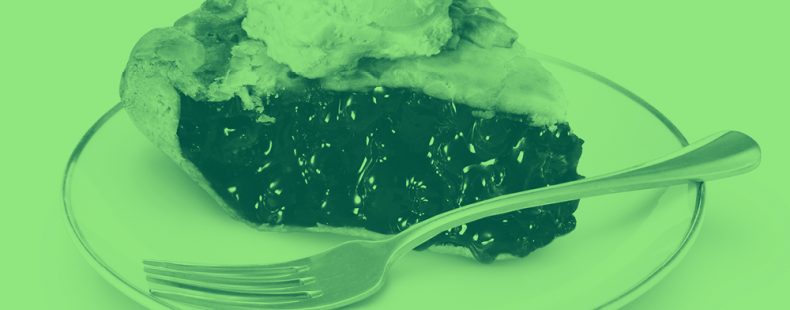Easy as pie
As many of us know from experience, it is not so easy to make a pie. A buttery crust can fall apart in the deftest of hands, and around Thanksgiving many pumpkin “pies” might be more accurately deemed pumpkin “soups.” On the other hand (or for our purposes), it is extremely easy to eat pie, even a whole pie at that.
Popularized in the US in the late 1800s, the most notable use of pie means “simple and pleasurable,” and it appears in Mark Twain’s The Adventures of Huckleberry Finn. Part of our next food idiom makes a home in many pies. Yum.





















